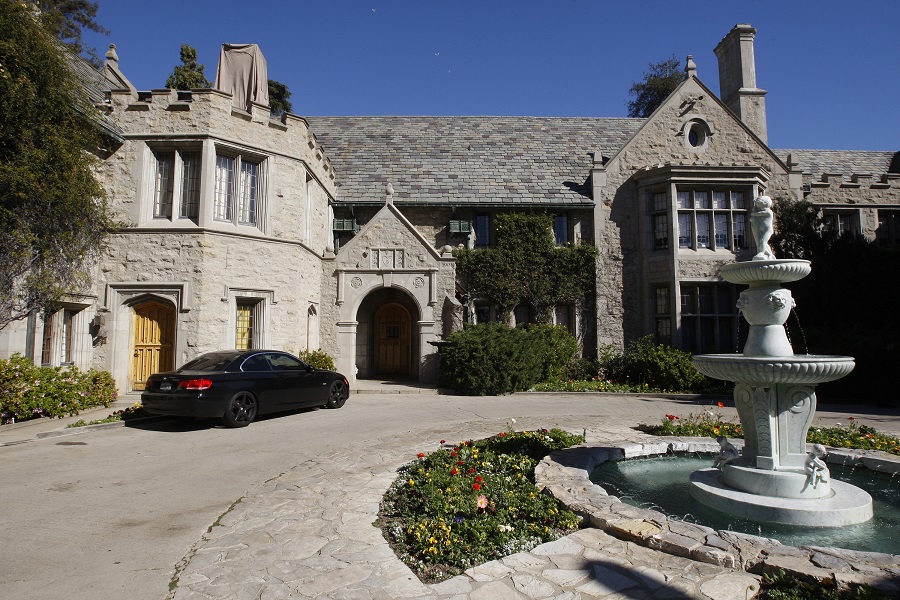
Playboy founder Hugh Hefner’s expansive Los Angeles mansion is for sale for a cool $200 million, reports Reuters. With nearly 20,000 square feet, 29 rooms, and features including a pool, tennis court, and a rare “zoo license,” the five-acre property has served as the backdrop for numerous hedonistic escapades during its four-decade occupation by Hef and friends.
The 1927 Gothic Tudor style house was purchased by Playboy in 1971 for a reported $1.1 million, a figure that may sound relatively paltry today, but at the time was among the most expensive real estate deals in the city.
Representatives for Hefner and Playboy have not revealed the impetus behind the decision to sell the property, however, a condition of its sale is that Hefner, 89, will be allowed to reside there until his death. During viewings, prospective buyers will not be allowed to see Hef’s bedroom and private quarters.
While both the mansion and the Playboy brand have become synonymous with the kind of Hollywood excess often rejected by the art elite, that doesn’t mean there aren’t plenty of connections between Hefner, Playboy, and the art world.
For instance, during an alcohol and drug-fueled bender (sans Yoko Ono) at the estate in the ’70s, musician John Lennon reportedly removed a Henri Matisse work from the wall and put a cigarette out on it. It’s still hanging there, cigarette burns and all.
Which brings up the fact that Playboy has an epic art collection. Some of the Playboy collection was sold off in 2010 (at which point it was also reported that the corporation was looking into selling the mansion), and it included the likes of Salvador Dali, Andy Warhol, and Tom Wesselmann. But the works sold were just “the tip of the iceberg,” according to a 2010 statement from the collection’s curator Aaron Baker. The company has over 5,000 contemporary artworks and more than 20 million photographs in storage in Chicago, which is the home of the original Playboy mansion.
Hef and his bunnies inhabited the 72-room neo-classical brick-and-limestone residence, located in the Gold Coast historic district of Chicago, from 1959–1974, at which point he donated the building to the Art Institute of Chicago, who used it as dorms until the late 1990s, when it was sold and converted to condominiums.
In recent years, under the watch of creative director Neville Wakefield, the magazine has recently sought to engage a more sophisticated audience by commissioning artists like Alex Israel, Aaron Young, Cindy Sherman, Richard Prince, and Richard Phillips to riff on the iconic brand, both within the magazine’s pages and on a larger scale.